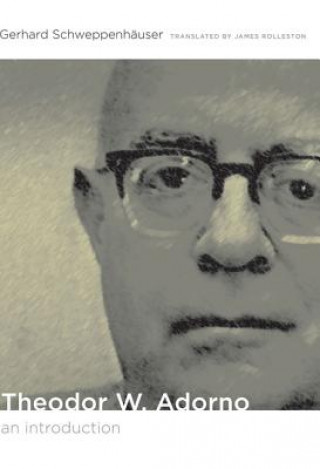
Delivery
Shopping guide





Doesn't suit? No problem! You can return within 30 days
 Gift voucher
any value
Gift voucher
any value
You won't go wrong with a gift voucher. The gift recipient can choose anything from our offer.
Theodor W. Adorno
 English
English
 83 b
83 b
 Delivery to Austria
Delivery to Austria
30-day return policy
You might also be interested in


Theodor W. Adorno (1903-1969) was one of the twentieth century's most important thinkers. Seeking to synthesize the essential insights of Western philosophy, Adorno revisited the ethical and sociological arguments of his predecessors - Kant, Hegel, Marx, Nietzsche, and Walter Benjamin - in light of two pivotal twentieth-century developments: the rise of fascism, which culminated in the Holocaust, and the standardization of "popular" culture as a commodity indispensable to contemporary capitalism. This volume, first published in Germany in 1996, provides a succinct introduction to Adorno's challenging and far-reaching thought. Gerhard Schweppenhauser, a leading German scholar of the Frankfurt School of critical theory (whose members included Adorno, Benjamin, and Horkheimer), explains Adorno's epistemology, social and political philosophy, aesthetics, and theory of culture. After providing a brief overview of Adorno's life, Schweppenhauser turns to the theorist's core philosophical concepts, including post-Kantian critique, determined negation, and the primacy of the object, as well as his view of the Enlightenment as a code for world domination, his diagnosis of modern mass culture as a program of social control, and his understanding of modernist aesthetics as a challenge to conceive an alternative politics. Along the way, Schweppenhauser illuminates the works widely considered Adorno's most important achievements: Minima Moralia, Dialectic of Enlightenment (co-authored with Horkheimer), and Negative Dialectics. Adorno wrote much of the first two of these during his years in California (1938-49), where he lived near Arnold Schoenberg and Thomas Mann, whom he assisted with the musical aesthetics at the centre of Mann's novel Doctor Faustus. Expanding on the German edition, this volume includes additional information about Adorno's philosophy of music and more analysis of Benjamin's influence on his theory of art and mass culture.
About the book
 English
English


 Contact
Contact How to shop
How to shop


































